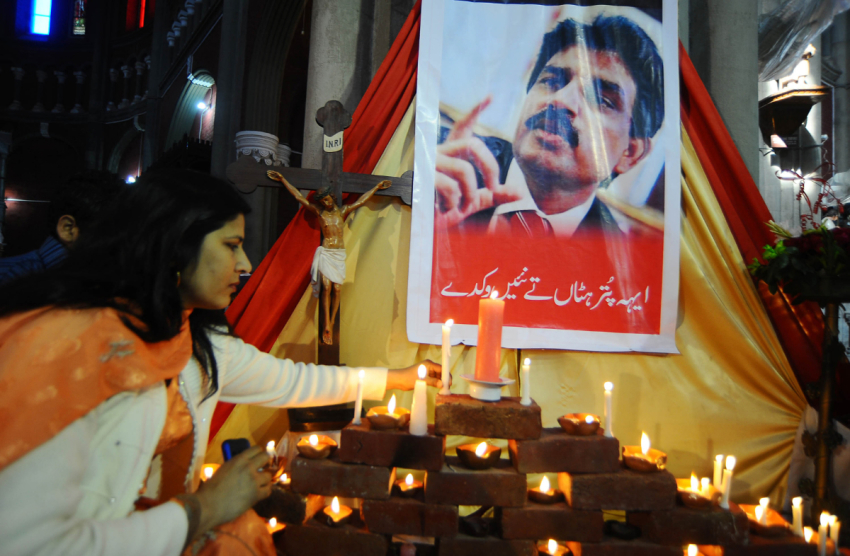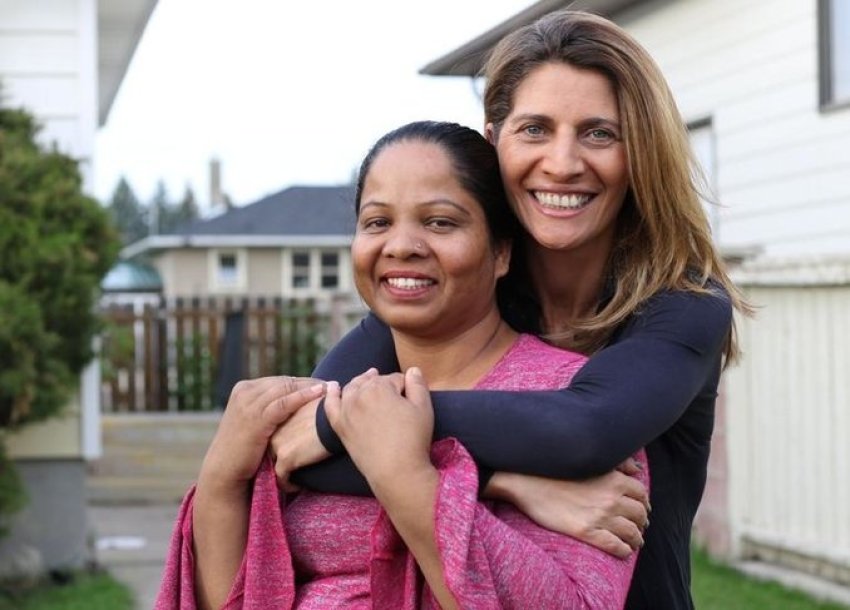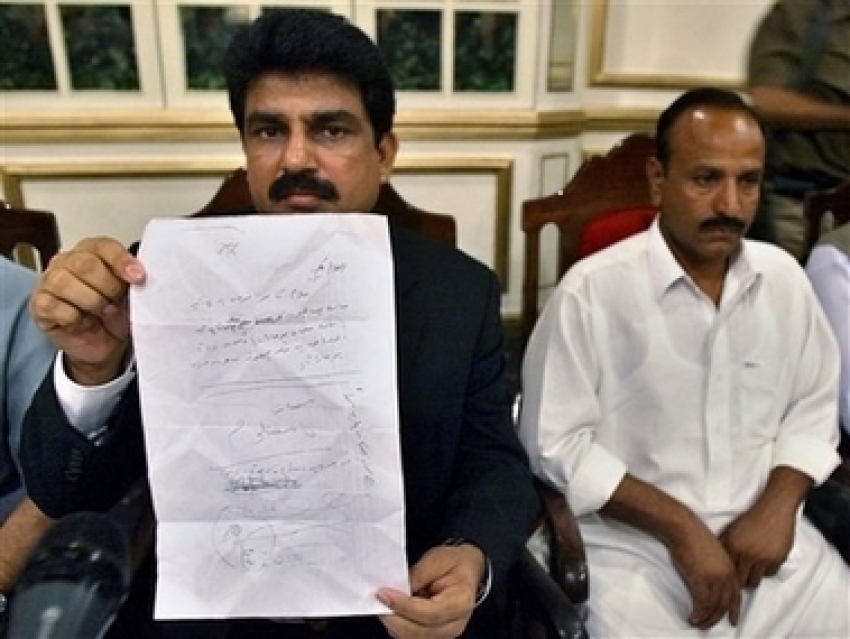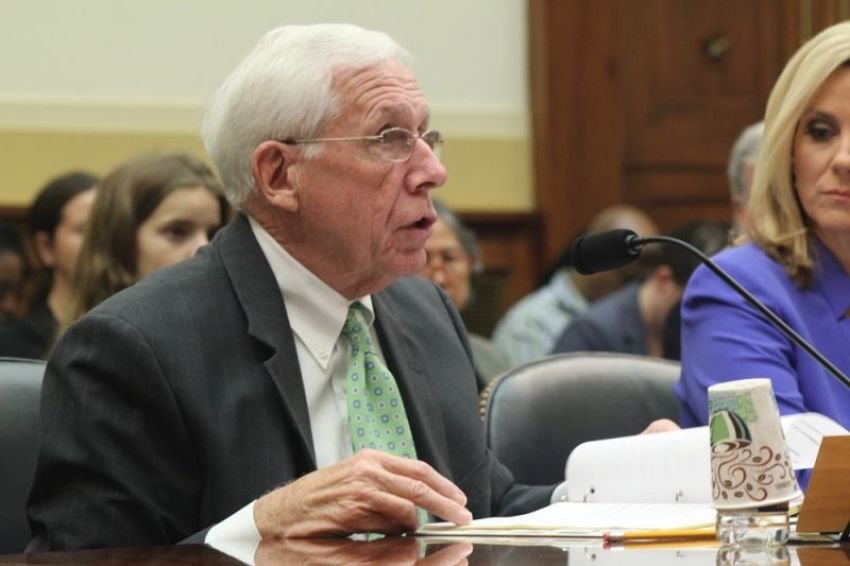'A lion of a man': Advocates worldwide honor martyr Shahbaz Bhatti 10 years after assassination

A defender of religious freedom and Christian martyr, Shahbaz Bhatti’s legacy lives on 10 years after his death, though religious oppression in Pakistan has heightened in the decade following his assassination.
International religious freedom advocates, legislators and religious leaders from across the globe on Tuesday participated in a virtual observance of the 10th anniversary of Bhatti’s death to honor the legacy of the first-ever Pakistani minister for minorities affairs and discussed the future of religious liberty for minorities in Pakistan.
The virtual event was hosted by the Religious Freedom Institute, International Christian Voice and Institute for Global Engagement. Bhatti was killed at the age of 42 on March 2, 2011, after facing years of death threats for his outspoken opposition to the country’s corrupt blasphemy laws and other injustices in the Muslim-majority nation.
Bhatti’s brother and founder of International Christian Voice, Peter Bhatti, said his brother’s “sacrifice will not go in vain.”
“Some of us must make small sacrifices in the fight of justice and equality,” Peter Bhatti said. “My brother … made the ultimate sacrifice of his life. After the Shahbaz Bhatti martyrdom, either we give up on his mission and allow our enemy to claim victory or to follow in his footsteps. … Letting his enemy win is not an option. It is the duty of all of us to carry on his mission.”
Bhatti, the former federal minister for minorities affairs and first Christian member of the Pakistan president’s cabinet, was shot through a car window multiple times. No one was ever held accountable for his murder.
The fatal attack was in response to Bhatti's demand to review the controversial blasphemy case of the Christian mother of five, Asia Bibi.
Bibi was acquitted by the Supreme Court of Pakistan in 2018 after being imprisoned for over a decade based on false allegations that she insulted Islam. She now lives in Canada with her husband and children.

Bibi shared a heartfelt video tribute to Bhatti and urged people never to forget him. She said he did not die since “he is still alive in our hearts.”
She urged the community to come forward “against injustice and inequality” to “protect our coming generation from these miseries.”

Bhatti’s nephew, David Bhatti, shared memories of visiting his uncle in Pakistan’s capital Islamabad. He remembers that his uncle was “everyone’s favorite.”
“He dedicated his entire life to fighting persecution, intolerance, discrimination and inequality of the religious minorities of Pakistan,” Bhatti said. “… He challenged the forces of violence and darkness and refused to be silent.”
Bhatti said his uncle empathized with the persecuted and felt their pain daily despite the joy he radiated.
“Although he always radiated such happiness, he always carried the grief of the innocent lives lost to another suicide bombing at a place of worship,” the nephew recalled. “Or he was harboring the heartache of wrongfully incarcerated prisoners who were languishing cold and alone, without any hope. Or he was experiencing the weight of the agony felt by villagers whose entire homes were burnt to the ground simply because they were religious minorities.”
Bhatti said his uncle remained a patriot and did not give up on the country he loved, despite his challenges and the injustice he experienced.
“For him, challenges were opportunities. Opportunities to lead by example…,” Bhatti said. “He empathized with the persecuted and oppressed deeply and to effect real, lasting change for this generation and for the next. He dreamed of seeing not just a Pakistan, but a world in which the dignity and worth of every human being was respected, valued and celebrated.”

Bhatti said his uncle’s death is easier to accept, knowing how he inspired people worldwide.
“My uncle believed that to despair is to accept defeat,” Bhatti said. “For him, silence is never an option. The legacy he leaves behind is a call to action: to be uncompromising in our principles, to name injustices wherever we see them and to be fearless in our pursuit of the truth.”
Other speakers included the Archbishop of Canterbury Justin Welby, former Archbishop of Karachi Cardinal Joseph Coutts and other leaders who promote religious liberty around the globe.
Statements from several U.S. senators and international leaders were also featured during the event.
U.S. Commission on International Religious Freedom Chairwoman Gayle Manchin shared that violent extremism has increased and religious minorities remain a target in the years following Bhatti’s death.
“Pakistan’s blasphemy laws are still being enforced vigorously with dozens of innocents languishing on death row and others serving lengthy prison terms,” Manchin said. “Now, more than ever, the U.S. government must send a message that there will be consequences for these egregious abuses.”
Manchin said the world continues “to gain strength from Mr. Bhatti’s legacy.”
“He defended a vision of a diverse, multicultural, and multi-religious society,” the USCIRF chairwoman added. “He opposed Pakistan’s blasphemy laws as a stark contrast to that vision, and he paid the ultimate price for that courage. Mr. Bhatti’s death was not in vain, and it will inspire and encourage us to keep pressing on until his vision is realized.”
Former U.S. Rep. Frank Wolf, R-Va., known by many as an impassioned advocate for international religious freedom, knew Bhatti as “a giant in the Christian faith.”
“He was a martyr and he was one of the most courageous and dedicated men I have ever known,” Wolf shared in his video statement. “Jesus said, ‘This is my commandment that you love one another as I have loved you. Greater love has no one than this that someone lay down his life for his friends.’ Shahbaz Bhatti did this.”

In the final interview before his death, which was shared in the virtual event, Bhatti said he understood his life was on the line for his stand against a radical philosophy and call to abolish blasphemy laws that oppressed minority faiths.
“But I want to share that I believe in Jesus Christ who has given his own life for us,” Bhatti said “… I am ready for a cause for my community and suffering people and I will die to defend their rights. … I would prefer to die for my principle and for the justice of my community rather than to compromise on these threats.”
A decade later, Pakistan’s blasphemy laws still lead to persecution of Christians and faith minorities. Under section 295-C of Pakistan’s penal code, blasphemy is punishable by death. Muslims often abuse the law to settle personal scores with religious minorities.
Pakistan ranks as the fifth most dangerous country in the world for Christians, according to Open Doors USA’s 2021 World Watch List. Under 2% of the country of over 200 million people is Christian.
In a panel discussion moderated by Rehman Chishti, a member of the United Kingdom House of Commons and senior fellow of the Religious Freedom Institute, panelists discussed the lack of religious freedom for minorities in Pakistan, the oppressive nature of blasphemy laws and how to enact the change Bhatti dreamed of and fought for.
Panelists included Peter Bhatti, former member of Pakistan Parliament Farahnaz Isaphani, former European Union Special Envoy Ján Figeľ and former Special Advisor in the Near East and South and Central Asia at the U.S. Department of State Knox Thames.
Moving forward, strengthening religious freedom in Pakistan will include external pressure persisting on reform and enacting change in the education system.
Isaphani, who served with Bhatti in Pakistan's Parliament, remembers him as a “lion of a man.”
Getting rid of blasphemy laws will be an interfaith global effort, Isaphani said. She said that even though politicians are afraid to talk about it, reform can still occur.
Thames said the blasphemy laws empower the most extreme and violent voices. Pakistan must rediscover its roots or oppression will “consume the country,” he said.
In the month before his death, Bhatti shared with The Christian Post in an interview that he had received death threats for speaking against Pakistan’s blasphemy law.
"But I will continue to follow the principles that I believe. I will continue to raise the voice of the voiceless,” Bhatti had told CP in the Feb. 11, 2011 interview. “And I will not feel fear because of these threats because I follow Jesus Christ who has given his own life for us. So as a follower of Christ, my destiny is to speak up for those who cannot speak up for themselves.”
The full video tribute and supplemental videos for Bhatti’s commemoration can be found here.


























